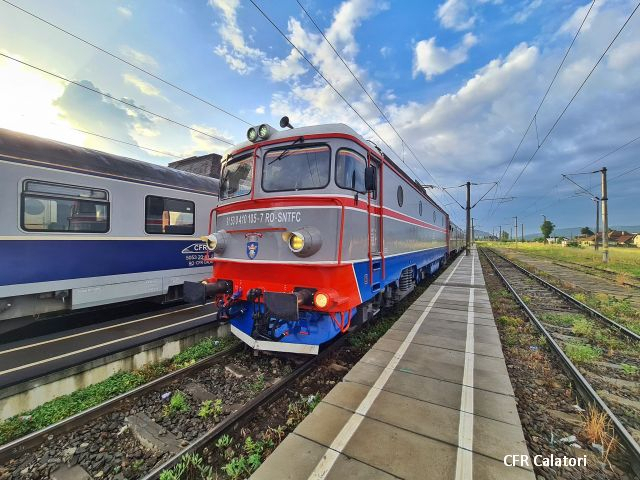Railways and Exact Time in the Romanian Space
People nowadays have the exact time at their fingertips, so they are taking it for granted

Steliu Lambru, 30.08.2021, 14:00
People
nowadays have the exact time at their fingertips, so they are taking
it for granted. We are surrounded by clocks of all kinds, and it is
almost impossible to not know what time it is at any given moment.
However, exact time has its own history. In this case, exact time is
closely tied to the emergence of railways, and is as fascinating as
any other major idea. We are influenced a lot by the most ordinary of
ideas and objects without even realizing it. Exact time and railways
were introduced alongside each other, around the mid-19th
century. Trains
appeared in 1830 in England, and Dorin Stanescu told us that this was
England’s gift to the world:
At
the moment when railways appeared in England, the English found that
they had a problem on their hands. We have to say very clearly that
Europe discovered speed in the mid-19th century. When
railways appeared, traffic was reduced, and railways had a single
track. However, once traffic increased, it brought with it a big
problem, that of synchronizing the clocks on trains, because the
absence of that led to a lot of accidents with a lot of victims.
Eventually,
the English found a solution. Dorin Stanescu told us about it:
The
first solution was proposed in 1840 by English captain Basil Hall,
who suggested that the entire country use the time in London. His
idea was successful initially, but the postal services did not agree.
However, railways proved to be a revolutionary institution in the
19th century, and people quickly understood that this was
the proper solution. The Great Western Railway company, starting in
November 1840, introduced a uniform exact time for its trains. Their
proposal was for the time in London, provided by the Greenwich
observatory, to be used uniformly by railway companies.
The
Romanian space, in a mad rush to modernize and be more like Europe,
adopted quickly everything coming from the West. Dorin Stanescu told
us that the English model was adopted without reservations:
By
1896, railways became a common sight in the Romanian landscape. As
happened everywhere in the world, it brought with it a single exact
time all across the territory, along with a system to synchronize it.
In Romania, they used the English model, setting everyone’s time by
the time in Bucharest. Up until 1890, Romania had only a few tracks
and trains every day, with little danger of accidents. After 1893,
France, Germany, and Austria-Hungary unified their time system, which
also started being adopted in Romania. Adopting the time in
Bucharest, based on the Greenwich mean time, was achieved by two
institutions: the Romanian Railroads and the Romanian Meteorological
Institute. The father of unified time in Romania was Stefan Hepites,
the head of the institute.
Standardizing
time telling was done at first in order to avoid tragedies, then came
introducing standards in institutions. Here is Dorin Stanescu:
In
order to measure time, a special room with a telescope was built in
1892, as in other countries. Stefan Hepites was sent by the
government to Germany to study their system of standardizing time.
One of the initial solutions proposed by Hepites was to announce
standard time every day at noon with a cannon shot. This experiment
was a failure. This happened in 1895. They gave up the practice,
because the cannon could not be heard all across the city. The
solution, introduced in September 1895, was a direct telegraph line
was set up between Filaret Railway Station and the Meteorological
Institute. Every day at noon the institute would transmit the exact
time, which was then telegraphed to every railway stations in the
country. After that, this mechanism was adopted by the postal service
and other institutions of the state. By 1900, the entire country was
tuned in to Bucharest time. This is the moment when they came up with
the slogan: Railway time is the country’s time.
We
asked Dorin Stanescu how telling time with precision changed people’s
lives and the way in which railways functioned:
We
find a lot of mentions about exact time and its impact on everyday
life for Romanians in literature. In some of the first novels, Manoil
and Elena by Bolintineanu, we find information about exact time. Then
we go from Nicolae Filimon’s ‘Old and New Nouveau Riche’ to
Caragiale’s sketches. In 1899, the latter wrote a sketch that centers
on telling exact time.
Railway
stations started putting up clocks for the public, essential staff
were given pocket watches, and trains and railways became a reference
point. Up until 1950, the exact time was provided in the country by
the national railway company, and after that, this mission was
relegated to public radio.





























